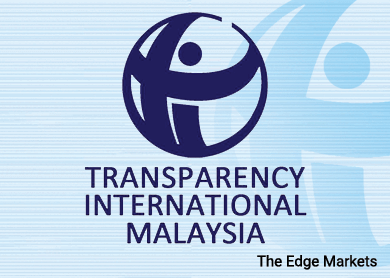
KUALA LUMPUR: Transparency International Malaysia’s (TI-M) latest Malaysian Corruption Barometer (MCB) 2014 survey found that 45% of Malaysian respondents ranked political parties as the most corrupt among six key institutions in Malaysia.
The police scored a close second (42%), followed by public officials/civil servants (31%), judiciary (24%), Parliament/legislature (23%) and the business/private sector (23%), according to the findings of the MCB.
The MCB, which surveyed the public’s experiences and views on corruption, and their willingness to combat the issue, had obtained feedback from 2,032 Malaysian respondents.
In a statement issued yesterday, TI-M president Datuk Akhbar Satar said the public are demanding for more transparency of public life in the current context of economic crisis.
“In particular, concerns are being expressed daily over risks relating to the integrity of politicians and the independence of public office holders, arising from conflicts of interest, undue influence and corruption, and especially now, more than ever, in the sphere of political financing,” he said. Akhbar said laws to govern this area must be implemented immediately.
He also noted that Malaysia ranked fifth from the bottom in a recent survey of 54 countries, in The Money, Politics and Transparency Campaign Finance Indicators 2014.
He also highlighted TI-M’s numerous calls for reforms in political financing, so that political parties are more transparent and accountable in the way they receive and spend donations on both sides of the political divide.
Akhbar also pointed out that Prime Minister Datuk Seri Najib Razak, in December 2014, agreed that political funding should be regulated for parties across the spectrum, putting it forward as a joint task of the ruling government and opposition.
“Sad to say, nothing has materialised so far in this area,” he added.
On May 5, 2011, TI-M submitted its 22-point memorandum on reforms in political financing in the country to the prime minister, based on its research on the state of political financing in the country (2009 to 2010), and focused on three key areas: institutional, legislative and media reforms.
This article first appeared in The Edge Financial Daily, on July 21, 2015.